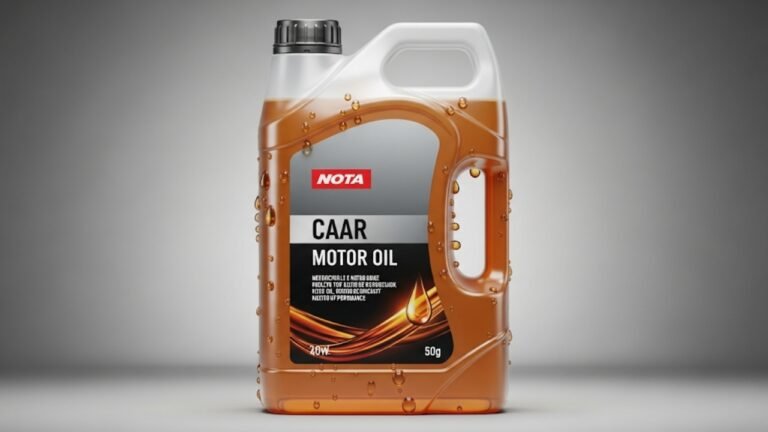Toyota New Car First Oil Change – Your Essential Guide

So, you just drove your brand-new Toyota off the lot. The seats smell fresh, the engine purrs like a kitten, and every light on the dash gives off that “welcome home” glow. But soon enough, a question pops up in your mind—or maybe your uncle or neighbor asked it first: “When should I do my Toyota new car first oil change?”
It might seem like a small thing, but your car’s first oil change sets the tone for how your engine will perform in the long run. Think of it like the first doctor’s visit for a newborn. You want to make sure everything is going well from the start. And if you get it right, your Toyota can easily reward you with many happy, hassle-free miles ahead.
In this article, we’ll take a deep dive into:
-
The ideal timing for your first oil change
-
Common myths you should ignore
-
The differences between synthetic and conventional oil
-
Warranty implications
-
DIY vs. dealership service
-
Real stories and tips from Toyota drivers
Let’s walk through this in plain, friendly language—because even though oil changes might seem technical, they really aren’t rocket science. This is your guide to doing it right the first time.
The Break-In Period: What Happens Under the Hood?
When your Toyota rolls off the assembly line, its engine is brand new. That means parts are tight, surfaces are smoothing out, and everything is settling into its place. This phase is called the engine break-in period, and it typically lasts up to the first 1,000 to 1,500 miles.
During this time:
-
Metal particles from the engine’s internal surfaces may get into the oil.
-
Your car’s systems are adjusting to real-world driving conditions.
-
The oil is working extra hard to lubricate and clean the engine.
This is why many car enthusiasts argue that the first oil change should be sooner than what the manual recommends. It’s not about mistrusting Toyota—it’s about being extra cautious, like giving your baby the best food from day one.
But what does Toyota officially say?
Toyota’s Official Recommendation: Stick to the Manual?

Toyota engineers design their engines and oil filters to handle modern synthetic oil that lasts longer and protects better. But there’s still debate among experienced mechanics and drivers who suggest changing it earlier—around 5,000 miles—to clear out break-in debris.
Here’s a comparison:
| Scenario | Suggested First Oil Change |
|---|---|
| Toyota manual recommendation | 10,000 miles or 12 months |
| Conservative approach | 5,000 miles or 6 months |
| Harsh driving conditions | 3,000–5,000 miles |
Key takeaway: If you want peace of mind, go for an early oil change at around 5,000 miles. It’s a low-cost investment for long-term reliability.
Real Talk: What I Did With My New Toyota
When I bought my Toyota Corolla, I was excited and cautious. My father, who’s been fixing cars since the 80s, gave me one solid piece of advice:
“Change that first oil early. Doesn’t matter what they print on that glossy manual.”
So, at 4,800 miles, I went to the dealership and asked for a full synthetic oil change. The technician smiled and said, “You’re not the only one doing this. Good choice.”
That night, I drove home feeling like I just gave my car a refreshing glass of water after a long jog. It ran smoother, and the engine noise dropped a bit. Maybe it was in my head—but peace of mind is priceless, right?
Why Changing Oil Early Can Be a Smart Move
Let’s break down the benefits of changing your Toyota new car first oil change early:
-
Removes break-in metal particles that might damage components
-
Keeps the engine internally cleaner from the start
-
Helps maintain consistent oil pressure
-
Builds a habit of proactive maintenance
-
May increase engine life by thousands of miles
Honestly, the cost is small—anywhere from $50 to $120 depending on the dealership or shop. But the long-term gain is huge.
Debunking Common Myths About First Oil Change
Myth #1: Modern engines don’t need early oil changes.
Reality: While it’s true that engines are better built, tiny metal shavings from new components still show up in the oil during break-in. Removing them early makes a difference.
Myth #2: You’ll void your warranty by changing oil too soon.
Nope. Changing oil early won’t void your warranty. In fact, documenting early maintenance can help you if warranty issues arise later.
Myth #3: All Toyota vehicles follow the same oil change schedule.
False again. A Toyota Tacoma isn’t the same as a Toyota Prius. Towing, hybrid engines, or turbochargers affect how soon you should change oil.
Driving Habits Matter More Than You Think
Here’s where things get personal. How you drive affects oil health more than you’d expect.
-
Short trips under 5 miles? Oil doesn’t warm up fully, so moisture stays inside.
-
Stop-and-go traffic daily? The engine works harder, heating and cooling often.
-
Heavy loads or hills? More stress equals faster oil degradation.
So if your lifestyle includes any of the above, consider doing your Toyota new car first oil change early, regardless of what the odometer says.
Conventional vs. Synthetic: Which Oil for Your Toyota?
Most new Toyota cars now come with 0W-20 full synthetic oil, which is engineered for long life and high protection. But here’s a simplified comparison:
| Type of Oil | Lasts (Miles) | Price Range | Protection |
|---|---|---|---|
| Conventional Oil | 3,000–5,000 | $30–$50 | Basic |
| Synthetic Blend | 5,000–7,500 | $40–$70 | Medium |
| Full Synthetic | 7,500–10,000 | $60–$120 | High |
For a Toyota new car first oil change, full synthetic is highly recommended. It resists breakdown better, handles heat, and keeps the engine clean.
Signs Your Car Might Need That First Change Sooner
Even if your dashboard doesn’t alert you yet, your car could still show signs that it’s ready for a change.
-
Engine feels rough or louder than usual
-
Oil looks dark or dirty on the dipstick
-
You notice lower fuel efficiency
-
The car hesitates during acceleration
These aren’t guaranteed signs, but if your car is acting different—and you’re around the 4,000 to 6,000-mile mark—it’s probably time for that oil change.
Should You Go to the Dealership or a Local Shop?
This one’s a hot topic.
Dealership pros:
-
They use Toyota Genuine Motor Oil
-
Service is documented in Toyota’s system
-
You get access to ToyotaCare benefits
Local shop pros:
-
Often cheaper
-
May offer faster service
-
More flexibility in oil brands
I personally stick with the dealership for the first two oil changes—just to be safe and keep a clean record. After that, I sometimes switch to trusted local shops when it’s more convenient.
What Happens If You Delay Your First Oil Change?
Here’s the thing—delaying your first oil change might not blow your engine up (thankfully), but it can silently cause problems. Think of it like not brushing your teeth for a few days. You won’t feel it instantly, but trouble is brewing.
If you wait too long, especially past 10,000 miles on your first oil change, you may:
-
Circulate metal shavings and debris through your new engine
-
Wear down components faster than expected
-
Experience early sludge buildup
-
Face reduced fuel economy
-
Void warranty coverage for neglecting maintenance
Toyota engineers designed their vehicles to handle longer oil change intervals, but that assumes perfect driving conditions—which most of us don’t have. Between traffic, weather, and short commutes, oil breaks down quicker than you’d think.
So, when in doubt? Change it out.
The Emotional Side: Peace of Mind Is Everything
Let me get real for a moment.
There’s a unique kind of comfort that comes from knowing you’ve taken great care of your car, especially when it’s brand new. When I did my first oil change at 4,800 miles, I felt proud, like I was giving back to something that I knew would serve me for years.
Cars are more than machines—they’re companions on road trips, helpers in emergencies, even quiet spaces for thinking. Giving your Toyota clean, fresh oil early on is like saying, “I got you.”
You don’t have to overthink it. Just trust your gut, listen to your car, and remember that a little early effort saves a lot of trouble later.
Tips to Get the Most Out of Your First Oil Change
Want to get the best bang for your buck? Here are some practical, no-nonsense tips:
-
Track the mileage after your first fill-up, and jot down the date in your phone or glove box.
-
Check the oil yourself every 1,000 miles. Pop the hood and look at the dipstick—if it’s dark, gritty, or smells burnt, you may need a change sooner.
-
Keep your receipts, whether from a dealership or a local garage. It protects your warranty.
-
Watch for dashboard lights, but don’t rely on them entirely. Your oil could be bad even if no warning pops up.
-
Ask the technician to show you the old oil—seeing the color difference is an eye-opener!
Remember: It’s not just about mileage—it’s about how the oil looks, smells, and feels.
Toyota Models and Oil Change Timing
Different models = different engines = different needs. Here’s a quick guide for popular Toyota models and when you might consider that first oil change:
| Toyota Model | Recommended First Oil Change | Notes |
|---|---|---|
| Corolla | 5,000–10,000 miles | Earlier if mostly city driving |
| Camry | 5,000–10,000 miles | V6 models may benefit from early swap |
| RAV4 | 5,000–10,000 miles | Especially important in hot climates |
| Tacoma | 3,000–5,000 miles | Towing, off-roading = early oil change |
| Prius (Hybrid) | 5,000–10,000 miles | Hybrid engines run cooler but still need love |
| Highlander Hybrid | 5,000–7,500 miles | Consider hybrid-specific oil reviews |
No matter your model, always check your Toyota Owner’s Manual for specifics.
FAQs About Toyota New Car First Oil Change
1. Can I do the first oil change myself?
Absolutely! If you know your way around an oil pan, filter, and drain plug, you can do it yourself. Just make sure to use Toyota-approved oil (usually 0W-20 full synthetic) and record the service in your maintenance log.
2. Does ToyotaCare cover my first oil change?
Yes! ToyotaCare offers complimentary factory maintenance for the first 2 years or 25,000 miles, which includes oil and filter changes at proper intervals. Just book a visit to the dealership.
3. What if I change my oil too early? Will it cause harm?
Not at all. In fact, early oil changes often help remove break-in contaminants. The only “harm” might be spending a little more money upfront.
4. How do I know what type of oil my Toyota needs?
Most 2020+ Toyota models use SAE 0W-20 full synthetic oil. But always double-check your owner’s manual or ask the dealership. Using the wrong oil can lead to engine damage.
5. What if I drive less than 1,000 miles in six months?
Oil ages over time, not just through mileage. Even if your Toyota sits mostly idle, do the first oil change within 6–12 months to keep it fresh.
6. Should I use an oil additive with my first change?
Usually, no. Toyota engines are built to run well with the oil alone. Additives can sometimes interfere with oil chemistry, especially with synthetic blends.
7. What happens if I skip the first oil change entirely?
Long-term, it can lead to sludge buildup, engine wear, and even voided warranties. Don’t skip it. It’s cheaper to change oil than rebuild an engine.
8. Is dark oil after 1,000 miles normal?
Yes, it can be. Oil darkens as it cleans the engine. But if it’s black and gritty, that may be a sign to change it early—especially during the break-in phase.
Final Thoughts: Your Toyota Deserves the Best Start
There’s something magical about the first few months with a new car. The quiet engine. The perfect steering. The smooth ride. But just like any relationship, a little attention in the beginning goes a long way.
Your Toyota new car first oil change isn’t just about swapping fluids. It’s about creating a habit of care, catching problems early, and building a connection with your vehicle. You don’t have to be a gearhead to do it right—just someone who wants their car to last.
So whether you stick with the 10,000-mile manual rule or play it safe with a 5,000-mile early change, do what feels right for you and your Toyota.
If you’ve read this far, chances are you already care more than most—and that alone puts you on the road to a happy, reliable, and long-lasting driving experience.






